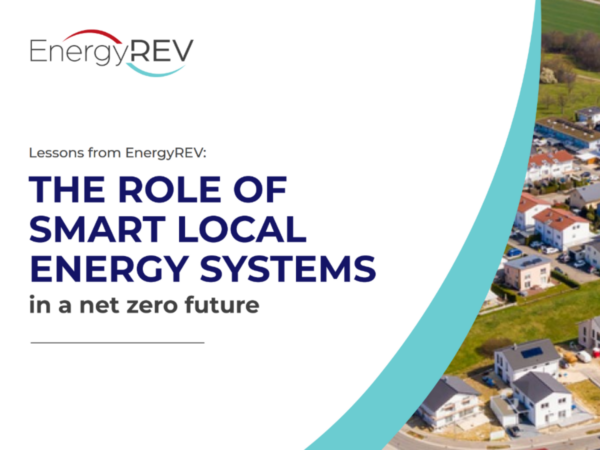Last year, Regen was commissioned by the University of Strathclyde to synthesise the huge body of research conducted in the EnergyREV programme and identify key recommendations and next steps for delivering smart local energy systems (SLES). Here, Rebecca Ford, discusses what needs to be done to unlock the value that SLES can bring.

Smart local energy systems have the potential to bring about significant value, both for the places that implement them, and the wider UK. They bring together energy supply, storage, heat, transport and buildings in a local area and they connect them in a smart way using data and digital technologies, providing new opportunities for people, communities and other local stakeholders to get involved.
Through these new forms of connection, management and engagement opportunities, SLES can bring about a range of local and national benefits. These include:
- Benefits to the energy system itself, such as grid optimisation and balancing
- Financial benefits through national-level cost savings
- Economic benefits such as new jobs and businesses
- Household and community-scale benefits such as protection from energy price volatility and reductions in fuel poverty
- Environmental and social benefits such as improved air quality and enhanced health and wellbeing
- Equity and justice outcomes through empowering marginalised and disadvantaged groups and encouraging fairer distribution of the costs and benefits associated with the net zero energy transition.
However, unlocking this value is complex and requires aligned actions from many stakeholders. This helps to build the right socio-technical environments that allow contextually applicable SLES to be created and delivered effectively across the UK.
Insights from across the huge body of EnergyREV research highlight seven key building blocks for unlocking the value of SLES. These include:
- Developing robust policy regulation and governance
- Creating a collaborative environment
- Building local skills
- Engaging and empowering the local community
- Unlocking innovative business models
- Ensuring market value and interoperability
- Underpinning with robust cyber-physical infrastructure
For each of these building blocks, our report outlines key recommendations for government, Ofgem, local authorities and others developing SLES, as well as SLES programme funders and relevant educators and qualifying bodies. In addition, the report reveals five cross-cutting challenges, and makes suggestions for next steps to address each of them.
You can download the report here, and watch our report launch event here.
If you’d like to chat further about this work, please contact Rebecca Ford.
